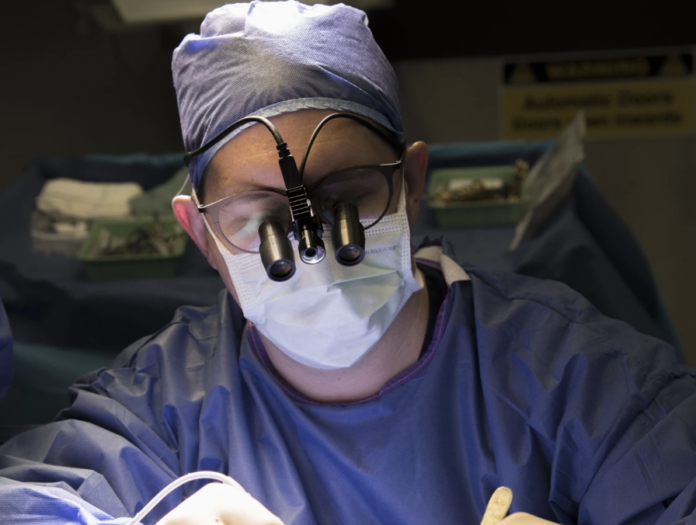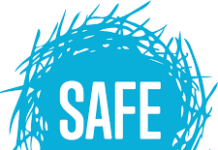David McCormack is a cardiothoracic surgeon employed at Waikato Hospital by Te Whatu Ora (Health New Zealand). He is also an Associate Chief Medical Officer and an Honorary Associate Professor of Surgery.
Surgical precision
He knows his clinical stuff. But he knows much more: He is socially aware, insightful and has a compassionate heart. This is evident from his recent post in LinkedIn(3 October):
As a cardiac surgeon – I had never treated rheumatic heart disease before coming to Aotearoa New Zealand. The grievous impact it has on young lives and whanau cannot be overstated.
It is a disease divided down racial lines in New Zealand – 93% of cases present in Pasifika and Māori children. Pasifika children are admitted to hospital for rheumatic fever 140 times more often than children of “European or other” ethnicities, while Māori children were admitted 50 times more often. On average 140 people die from rheumatic heart disease each year. Roughly 160 new cases are diagnosed a year but many cases go unreported.
Anything that can be done to remove the inequitable burden of this disease on the population is of the greatest priority.
I look forward to the day that rheumatic heart disease becomes a historic rarity on these shores.

Cardiothoracic surgeon David McCormack: knowledgeable, socially aware and compassionate
With surgical precision McCormack has hit the nail on the head. In summary, he had to migrate to Aotearoa New Zealand to come across this extremely rare disease (in developed economies), overwhelmingly this disease disproportionately and unjustly affectsMāori and Pasifika children, many cases are unreported (unmet need), and it must become a “historic rarity”.
McCormack’s catalyst
The catalyst for his post was a Guardian article by Eva Colette (7 August): New Zealand’s most iniquitous disease. The article describes rheumatic fever as a “deadly autoimmune disease” for which there is no cure.
“It can be painful, cause neurological effects, and can develop into irreversible rheumatic heart disease, requiring long-term drug treatment and, on occasion, heart valve surgery.”
Corlette discusses in depth the impact of the disease on “racial lines” (Māori and Pasifika) and concludes that “On many measures, New Zealand is currently one of the worst places in the developed world to be a child.”
Homegrown breakthrough research: skin infections
The Guardian article also draws upon some very interesting New Zealand breakthrough research. Rheumatic fever can be triggered by untreated strep-throat (a bacterial infection that may cause a sore, scratchy throat). But this home-grown research has discovered that it can also be triggered by untreated skin infections.
The research is reported in the highly respected international medical journal The Lancet (4 July): Risk factors for acute rheumatic fever. The lead author for this article is prominent epidemiologist Professor Michael Baker.
Baker and his colleagues’ work is even more important because of the lack of previous published research on the risk factors behind acute rheumatic fever; an absence that has alarmed paediatricians and epidemiologists for years.

The expertise of Professor Michael Baker and his colleagues is much more than pandemics
Those most likely to develop skin infections are those who live in overcrowded housing. They comprise more than 10% of Aotearoa’s population. While highly disproportionally Māori and Pasifika, many of these 10%+ also come within the European/Pakeha census classification living in similar circumstances.
Compound this impact of overcrowding with the fact that those who lack access to primary healthcare largely provided in New Zealand by general practitioners, are more likely to develop acute rheumatic fever. What a deadly combination!
No wonder Baker describes this fever as “…most iniquitous disease probably in New Zealand.” One lesson to be taken is the need for health professionals to go all out on treating skin infections.
A ‘national disgrace’
Among many comments on David Cormack’s LinkedIn post was the following from Rob Campbell, Chair of Te Whatu Ora:
You are right David. A national disgrace. Needs all agencies and communities working together.
And remember this, people who are well off and the businesses that employ the parents on low wages, you bear responsibility too.

Te Whatu Ora Chair Rob Campbell has made a very good response to McCormack, but…
Like McCormack, Campbell’s post in response is very good. He’s right to describe it as a “national disgrace”. Michael Baker’s call for health professionals “…to go all out on treating skin infections” is the right call to make. Like McCormack, he is doing the responsible thing.
Where responsibilities reside
But the challenge to ending this “national disgrace” is first, addressing the severe health professional shortages in both community and hospital care. These shortages are the biggest obstacles to treating skin infections at the level required. Campbell’s responsibility is to ensure that Te Whatu Ora immediately takes the necessary steps to address these shortages.
However, as Rob Campbell correctly observes, addressing this “national disgrace” goes beyond the health system. Acute rheumatic fever is driven by social determinants of health which are external to the health system. These determinants are by far responsible for the greatest demands on the health system as well as being its biggest cost driver.
There are several social determinants of health with the most significant being low incomes. But housing is also a big factor. Recent data suggests that the Government’s heathy homes initiative has had a positive influence in reducing hospital admissions for some conditions within a relatively short period of time.
But much more has to be done in housing. Even more has to be done with incomes, including benefit levels and extending the ‘living wage’ (itself only a little over a mere $23 per hour). This is a government rather than health system responsibility. No-one else can fix it.
Ensuring that the health system has the right workforce capacity and capability to treat skin infections is the responsibility of Te Whatu Ora. It is also its responsibility for it to forcefully and persistently advocate government action on addressing social determinants of health, beginning with income and overcrowding housing.
Ian Powell was Executive Director of the Association of Salaried Medical Specialists, the professional union representing senior doctors and dentists in New Zealand, for over 30 years, until December 2019. He is now a health systems, labour market, and political commentator living in the small river estuary community of Otaihanga (the place by the tide). First published at Otaihanga Second Opinion





Agree Ian. Over crowded housing and the conditions of that housing impact the health system as do other big drivers we could do more about. Air pollution in main centres is also a great driver of respiratory disease, the burden and cost of which is significant.
I’ve heard the air pollution thing in NZ before…
little anecdote bit gross but bear with…
where I grew up in northern england you’d get black nose bogeys(called crows in slang…black y’see) and greeny/brown phlegm (that you could put up wallpaper with) I didn’t suffer from any ‘condition’ it was the norm from the pollution, since I’ve lived here no black bogeys and phlegm is colourless…..now I’m not saying we shouldn’t keep an eye on it but I am saying NZ is not manchester during the industrial revolution
Not just overcrowding and possibly, pollution.
Is rheumatic fever something that many are exposed to but few contract?
The reason I ask is that I had some tests for something once that showed all the common diseases I had been exposed to, only a minority of which I’d ever contracted. I had antibodies for RF but never actually contracted the disease. So is this also about the disadvantaged circumstances that make some children much less able to resist such infections?
I grew up in South Auckland where RF was rife, but I was luckier in all of the circumstances referred to. I remember what we called ‘school sores’ as being a kind of marker of a child living in extreme hardship. Again, I was constantly exposed by friends but never contracted whatever these actually were.
Poverty and our inadequate health system are a national disgrace. I so wish there was political will to actually improve these appalling conditions. I see Ardern’s famous covid line ‘any death is one death too many’ is untraceable by Google now. (At least it was when I tried to locate it recently). I assume it was deemed only applicable to the middle class. That the line could come back to bite Labour in relation to desperate matters it prefers to ignore.
Agree Ian. Over crowded housing and the conditions of that housing impact the health system as do other big drivers we could do more about. Air pollution in main centres is also a great driver of respiratory disease, the burden and cost of which is significant.
Yes. The current government’s self – serving decision to axe the much needed Commissioner for Children says it all really. Shame on them.
Good to know that healthy homes did not apply to state, community and emergency housing, until 2 years later than private housing. Sarcasm. Emergency and community housing does not answer to the tenancy tribunal.
Woke cancelled the private landlord while making things worse for state, community and emergency housing tenants.
They then blew out the budget on this. Previously HNZ returned a profit and all that was needed was to put that profit back into upgrading the state houses.
Government faces 60-year debt blowout after building costs explode
https://www.nzherald.co.nz/nz/government-faces-60-year-debt-blowout-after-building-costs-explode/R7L54GYHNIEJD3Z6TQDFOYRJMI/
The obvious place to have started to build up better housing was state and community housing not the private sector. But they gave land away with Kiwibuild and kept adding via immigration, more people who were in poverty and need these state houses.
More migrants are coming to NZ with high needs who get state funded housing, but this is impacting on NZ families who lived in NZ all their lives. NZ visas, residency and citizenship is very easy to get, and created a boom of people who can just access NZ.
“It appeared the offender, who Stuff understands was born in New Zealand but his family moved to Hong Kong when he was only weeks old, returned in late 2019 with fraud on his mind.”
https://www.stuff.co.nz/national/121302846/colour-drained-from-real-estate-agents-face-as-he-realised-hed-been-defrauded-of-120k-in-sim-hijacking-scam
Hastings family of seven get public home after nearly three years in motel
“They moved to New Zealand from Samoa at the beginning of 2016” https://www.nzherald.co.nz/hawkes-bay-today/news/hastings-family-of-seven-get-public-home-after-nearly-three-years-in-motel/QAYNIKSBUEJ5QD3ET6VIWSF6D4/
Government needed to pause immigration, create conditions similar to Australia for migrants, and focus on getting better standards for NZ children and can house them, before adding to the demand with their immigration policy that seems to be adding more children, criminal activity and low wage families into NZ.
Government fuelled a housing boom which was NOT about low cost housing but about maximising developer profits and giving tax breaks for foreign investors, creating more and more million dollar apartments and housing everywhere, that did the opposite, drove up the prices.
50% of NZ construction of Auckland is now Chinese construction as they cancelled the NZ builder. Not seeing poverty lifting but are seeing a lot of cash labour.
All this is fuelled by massive amount of right wing/woke braying immigration https://www.stuff.co.nz/business/128282098/nz-may-get-60000-more-migrants-than-forecast-under-visa-scheme-says-national of people who are mostly on low wages and have a lot of dependants – thus driving more competition of poverty in NZ especially children.
Once migrant families get the work visas, then the responsibility of looking after their current and unborn children health and education care, falls on NZ state, which is doing a terrible job for its existing children in health care and maternity and actually driving the professional workers needed, out of NZ.
Already more migrant nurses leave than NZ trained nurses and there are 2 migrant doctors for every 1 NZ trained doctor. Not sure that this approach has improved NZ’s health care and retaining the brain drain.
It’s more like a revolving door policy of unsatisfied professional health workers leaving NZ. This is not about race, it is about NZ pay and work conditions becoming lower and lower over time, and they trying to hide this with foreign recruitment policy that is making it even more complicated.
One the flip side, we now have criminals with dubious links to NZ, that are being deported back here. The government seems to think that’s a great thing.
The good people are leaving and the criminals are coming back!
Good to see the low wage economy that the Natz wanted, implemented by Labeen. Sarcasm.
Meanwhile, AFAIK Christchurch doesn’t have a single dermatologist. And from what I’ve heard the single guy we had before that for a decade or two was a useless alcoholic prick.
But abolishing DHBs and having three seperate health ministries will help, right? Especially given aspirational goals with no underlying policy or direction has proven so useful in the past…
If we had free doctors at KFC , Burger King , Booze Outlets and where cigarettes are sold , we could make a start on identifying some of these lifestyle related diseases…..Opening every window in the house for an hour in the morning would go along way in airing out crowded homes and making them a healthy home….years ago it was common to have large family’s and homes had the little skylight windows on the chords and this enabled fresh air to circulate. Parents can drive to get fags and booze but can’t get their kids to a doctor…..this article is just taking the piss……
How about reinventing the School Dental Nurse scheme as a School General Nurse.
Sounds practical. Those mobile clinics would be excellent, travelling around too. Just make sure that the nuts on the wheels are properly tightened and are the proper type of metal – lately it appears that these large, heavy, expensive and useful vehicles have been collapsing.
But she’ll be right mate, the gummint isn’t responsible for delivery of anything really, not even practical, effective, good, timely delivery. The government isn’t good..goo…go…g? – (starts with g for government so back to basics, back again to the start of government at this late stage in history. Have we got time to make it operational again?)
big tick peter
why is it that the right always always cook up extreme examples and pretend it’s the norm…well I do know but …yup sure there are wasters, always has been and always will be and under any system but most are just trying to get by, buttttt acknowledging that doesn’t help you despise them does it rm?
Robs Mob It is bloody insulting to say to an informed author that they are just taking the piss. You should be taking time to be informed yourself and not put down those who bring us information about problems that are real. You merely show us how empty anything you say is. Please aim for balanced judgment after attempts at great understanding? Otherwise your opinion isn’t worth diddley-shit.
So, the size of your house prevents you from going to the doctor and getting a course of antibiotics?
(Oh, and my house was never overcrowded because I only had two kids, and only then when I knew I could afford it.)
it does have to be said condoms(or whatever you prefer) is one of the ways out of intergenerational poverty.
So the answer is for every creature on this planet to be an Andrew?
Fuck that for a life.
Not at all – live your life as you see fit. Just be prepared to bear the consequences and don’t expect me to pick up the tab.
Lucky you Andrew. That was then for housing this is now. You had parents or caregivers that taught you how to manage yourself and the world you live in. You are judging everything by 20th century standards – now we are living in one on the edge and some empathy and compassion and help is needed from the PTB. While you were growing up in some order, the government was running a parallel system such as Lake Alice that was a place of incarceration, perhaps torture, not sanctuary for young ones. And living conditions started dropping before 1984, yet we still believed that we were a good country, good to bring up children. So don’t be too quick, to heave half-a-brick of criticism please.
Preaching to the converted Ian.
But also good luck with that!
Now, an in person GP appointment takes 2.5 months in our small city. And almost all of the several Drs surgeries are not accepting new patients for the last year or so.
The world let health professionals age out or burn out during Covid and consequently, we are looking at a 4 to 7 year time lag as a minimum to get back to pre Covid staffing levels. Its inescapable and a worldwide problem. Albeit likely a bit worse in NZ than most places. And the poor keep suffering.
Response to that unattractive title likely to be received from the PTB. ‘Stop defacing NZ image with graffiti-like memes of truth about the Nation. We have spent a lot of political capital building a fake Berlin wall against the denizens of darkness.’
Remember ‘No news is good news’ and ‘What ya don’t know won’t hurt ya.’
we had a women and baby die because of sepsis and no one in the ED spotted it and admitted her.
we had a man lose his foot because of an ingrown footnail that was not fixed in time.
our health sector is broken.
our housing sector is broken.
food is something that is delivered in a food box courtesy of a charity for many and that is often the only food there is.
6 people in a one bedroom motel unit is considered ‘housing’ by our esteemed labour party, the green party, national and all the other empty suits.
NZ is deeply inequitable, and above all it is deeply unequal.
It all turned to —- when housing became, not a home which led to security in ones old age, but all about “mum and dad investors” and “getting on the property ladder”. and this LINO government is doing not a damned thing about it.
Yes RosieLee but it did originate under National. Labour are to blame for not finding a solution to Ghost houses and cancelling investment instead of purchases of homes for life, something National and Act don’t want.
Comments are closed.